One of the most significant challenges for many people looking to lose weight is creating an effective meal plan. And for the growing number of individuals who choose to follow a vegetarian diet, this task can seem even more daunting. But fear not! With the right approach and knowledge, vegetarian meal planning for weight loss can be just as simple and effective as any other dietary strategy. In this detailed guide, we will explore the many health benefits of vegetarianism, the best vegetarian foods for weight loss, how to build a balanced vegetarian meal plan, and provide a sample one-week meal plan to get you started. So, if you’re ready to take control of your health and eating habits, let’s dive in!
Why Choose Vegetarian Meal Planning for Weight Loss?
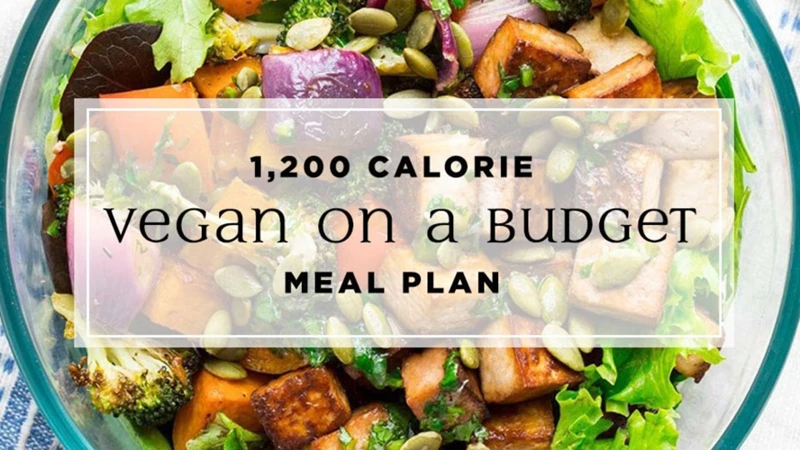
Are you considering a vegetarian meal plan for weight loss but not sure if it’s the right choice? There are numerous reasons that make a vegetarian diet a good option for weight loss. Not only is it naturally low in calories and high in fiber, but it can also provide numerous health benefits. Studies have shown that a vegetarian diet can reduce the risk of chronic diseases, such as heart disease, type 2 diabetes, and certain cancers. Additionally, a vegetarian diet allows for the consumption of nutrient-dense foods that can improve overall health. With the right planning and knowledge, a vegetarian diet can be an effective and healthy way to lose weight. Let’s explore the reasons why you should choose vegetarian meal planning for weight loss. If you are interested in creating your own meal plan, check out our guide on how to create a meal plan for weight loss.
Health Benefits of Vegetarianism
Adopting a vegetarian diet has numerous health benefits. Here are some of the most important:
- Reduced risk of chronic diseases: Research shows that vegetarians have a lower risk of heart disease, high blood pressure, Type 2 diabetes, and certain cancers.
- Improved digestion: Vegetarians generally consume more fiber, which aids digestion and prevents constipation.
- Increased energy: Plant-based diets are typically higher in complex carbohydrates, which provide sustained energy throughout the day.
- Better weight management: Vegetarians tend to have lower BMI and body fat percentage, which reduces the risk of obesity-related health problems.
- Clearer skin: A diet rich in fruits and vegetables can improve skin health and give you a glowing complexion.
- Reduced carbon footprint: Plant-based diets have a lower environmental impact than meat-based ones, making them a more sustainable choice.
While the benefits of vegetarianism are well-documented, it’s important to make sure you’re meeting the nutritional requirements of a healthy diet to maximize the benefits. This is especially important if you’re using a vegetarian diet for weight loss.
Vegetarianism and Weight Loss
Following a vegetarian diet is an effective way to achieve weight loss goals. Research has shown that individuals who adhere to a vegetarian diet tend to have a lower body mass index (BMI) and are less likely to be obese compared to those who consume meat. This difference can be attributed to various factors associated with vegetarianism, such as a higher intake of fruits, vegetables, whole grains, and legumes.
Consuming whole, plant-based foods increases the fiber content of meals, leading to improved satiety and decreased hunger. Additionally, many vegetarian foods are low in calories, making them ideal choices for individuals looking to lose weight.
Plant-based foods are typically rich in nutrients such as vitamins, minerals, and antioxidants. These nutrients contribute to improving overall health and wellbeing, which is essential when trying to lose weight. A diet rich in vegetables and fruits can also reduce the risk of chronic diseases such as diabetes, heart disease, and cancer.
Incorporating a variety of vegetarian sources of protein – such as lentils, beans, nuts, and quinoa – can also benefit weight loss. These foods are not only high in protein but are also low in saturated fats and cholesterol. Consuming a diet that is high in protein can help reduce cravings and, in turn, result in fewer calories consumed daily.
A vegetarian diet can be a healthy and effective way to achieve weight loss goals. By incorporating a variety of high-fiber, low-calorie, and nutrient-dense foods along with protein-rich plant sources, individuals can create a balanced and sustainable meal plan. To learn more about how to create a vegetarian meal plan, check out our sample one-week vegetarian meal plan for weight loss. Additionally, utilizing meal planning tools and following tips for making meal planning easier can help make the process more manageable. Remember, weight loss requires a commitment to clean eating, so incorporating clean eating principles into a vegetarian diet can lead to long-term success.
Top Vegetarian Foods for Weight Loss
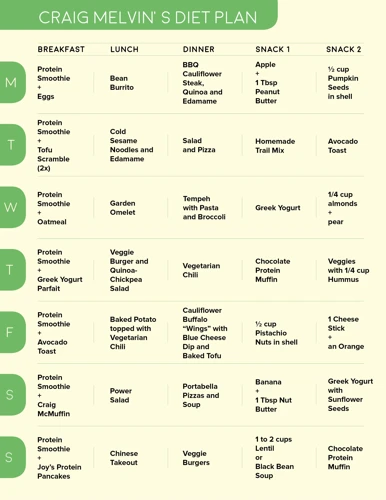
When it comes to weight loss, choosing the right foods is key. Vegetarianism provides an abundance of healthy and nutritious options that can help support weight loss goals. Incorporating a variety of high-protein, high-fiber, and low-calorie plant-based foods can promote feelings of fullness, reduce hunger pangs, and ultimately lead to a decrease in overall calorie intake. Let’s take a closer look at some of the top vegetarian foods that can help support weight loss efforts.
High-Protein Foods
If you’re considering a vegetarian meal plan for weight loss, you might be wondering where you’ll get your protein. But don’t worry, there are plenty of plant-based options that are high in this essential nutrient. Here are some of the top high-protein foods:
| Lentils | Lentils are not only high in protein, but also in fiber and complex carbohydrates. They can be added to soups, stews, salads, or even made into a vegetarian burger. |
| Chickpeas | Chickpeas, also known as garbanzo beans, are a versatile source of protein. They can be roasted, added to salads or soups, or blended into a tasty hummus. |
| Quinoa | Quinoa is a complete protein, meaning it contains all nine essential amino acids. It’s also high in fiber and can be used in a variety of dishes, including salads or as a side dish. |
| Tempeh | Tempeh is made from soybeans and is a great source of protein. It can be marinated and grilled or used in stir-fry dishes. |
| Tofu | Tofu is another soy-based food that is high in protein. It can be used in a variety of dishes, such as stir-fries, soups, or even as a substitute for scrambled eggs. |
| Nuts and Seeds | Nuts and seeds, such as almonds, chia seeds, and pumpkin seeds, are not only high in protein, but also in healthy fats. They can be added to smoothies, salads, or eaten as a snack. |
Incorporating these high-protein foods into your meals can help ensure that you’re meeting your daily protein needs. Additionally, many of these foods are also high in fiber, which can help keep you feeling full and satisfied, making it easier to stick to your weight loss goals.
High-Fiber Foods
Fiber is an important nutrient for weight loss as it helps keep you full and satisfied, regulating your appetite and preventing overeating. Vegetarian diets are typically high in fiber due to the emphasis on plant-based foods. Some of the top high-fiber foods to include in your vegetarian meal plan for weight loss are:
| Fiber-Rich Foods | Amount of Fiber per Serving |
|---|---|
| Beans (black, kidney, chickpeas, etc) | 6-9 grams |
| Lentils | 8 grams |
| Quinoa | 5 grams |
| Brown rice | 3.5 grams |
| Whole wheat pasta | 6 grams |
| Brussels sprouts | 3.3 grams |
| Broccoli | 2.4 grams |
| Artichokes | 7 grams |
| Pears (with skin) | 5.5 grams |
| Raspberries | 8 grams |
In addition to these high-fiber foods, it’s also important to drink plenty of water to help the fiber move through your system and prevent constipation. Remember to gradually increase your fiber intake to avoid digestive discomfort.
Low-Calorie Foods
When it comes to weight loss, consuming fewer calories than your body burns is crucial. Incorporating low-calorie foods into your vegetarian meal plan can help you achieve a calorie deficit without sacrificing nutrition.
Here are some delicious options for low-calorie vegetarian foods:
- Leafy Greens: Spinach, kale, collard greens, and other leafy greens are packed with essential vitamins and minerals, and they’re also low in calories. For example, one cup of spinach has only 7 calories.
- Cucumbers: These refreshing veggies are great in salads, dips, or as a snack by themselves. A cup of sliced cucumbers contains only 16 calories.
- Mushrooms: Not only are mushrooms low in calories (only around 15 calories per cup), but they’re also loaded with antioxidants and fiber.
- Asparagus: This tasty vegetable is low in calories and high in nutrients, such as folate and vitamin K. One cup of asparagus contains only 27 calories.
- Zucchini: This versatile veggie can be spiralized, chopped, or stuffed. One cup of sliced zucchini has only 19 calories.
- Berries: These sweet treats are high in fiber, vitamin C, and antioxidants, and they’re low in calories. For example, one cup of strawberries has only 49 calories.
- Broth-Based Soups: Low-calorie, broth-based soups are a great way to fill up without consuming a lot of calories. Vegetable-based soups such as minestrone, tomato, or lentil soup provide good amounts of fiber, vitamins, and minerals, while keeping the calorie count low.
It’s important to note that while these foods are low in calories, they should not be the only foods you consume. Incorporating a variety of high-protein and high-fiber foods into your vegetarian meal plan is essential for overall health and satiety. By combining low-calorie options with other nutrient-dense foods, you can create a balanced meal plan that supports weight loss and good health.
How to Build a Balanced Vegetarian Meal Plan for Weight Loss
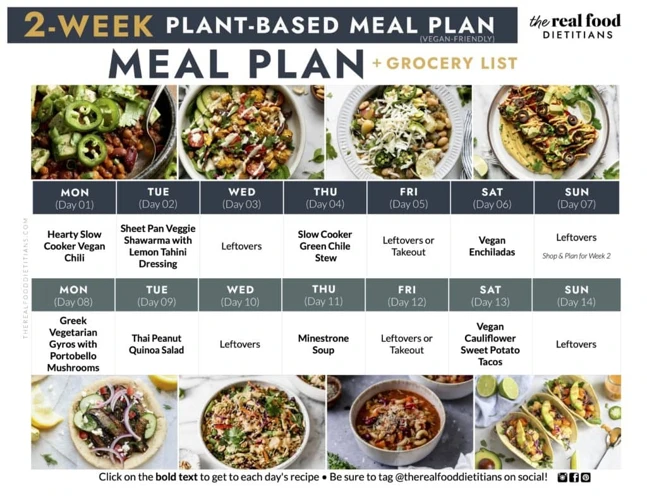
Creating a well-planned vegetarian meal plan is an essential step towards achieving sustainable weight loss. However, building a balanced plan that will give your body the nourishment it needs while reducing calorie intake can be a daunting task. Fortunately, with the right tools and knowledge, anyone can create a vegetarian meal plan that supports weight loss while providing optimal nutrition. In the following sections, we’ll explore the caloric needs of the body, important macronutrients to include, and meal planning strategies to help you build the perfect vegetarian meal plan for weight loss.
Caloric Needs and a Healthy Diet
When it comes to creating a vegetarian meal plan for weight loss, it’s important to understand your caloric needs. The number of calories you need each day will depend on factors such as your age, height, weight, and activity level. You can use an online calculator to estimate your daily caloric needs, and then adjust your diet accordingly.
In addition to monitoring your calorie intake, it’s also important to focus on eating a healthy diet that is rich in nutrients. This means choosing a variety of whole, minimally processed foods rather than relying on highly processed or pre-packaged options.
Here are some tips for creating a healthy vegetarian meal plan for weight loss:
- Focus on protein: Incorporate a variety of protein-rich foods into your meals, such as beans, lentils, tofu, tempeh, nuts, and seeds. These will help you feel full and satisfied, and also support muscle maintenance and growth.
- Choose whole grains: Opt for whole grain breads, pastas, and rice instead of refined options. These will provide more fiber and nutrients, and also help keep you feeling full.
- Eat plenty of vegetables and fruit: These are nutrient-dense and low in calories, making them a great choice for weight loss. Aim for a variety of colors and types to get a wide range of vitamins and minerals.
- Limit added sugars and fats: Be mindful of added sugars in things like processed snacks, desserts, and sweetened beverages. Similarly, choose healthy fats like those found in nuts, seeds, avocados, and olive oil, but be mindful of portion sizes.
By prioritizing nutrient-dense whole foods and monitoring your calorie intake, you can create a healthy vegetarian meal plan that supports weight loss and overall health.
Balancing Macronutrient Intake
One key aspect of building a balanced vegetarian meal plan for weight loss is ensuring that you are consuming the right amounts of macronutrients – protein, fats, and carbohydrates. Each macronutrient plays a crucial role in maintaining good health and promoting weight loss, so it’s important to strike the right balance.
Protein: Protein is essential for building and repairing tissues in the body, and it’s especially important for vegetarians who may not consume meat or animal products. Some great sources of plant-based protein include beans, lentils, tofu, tempeh, nuts, seeds, and whole grains. Aim to include a source of protein in each meal to help keep you feeling satisfied and full.
Fats: Despite its bad reputation, fat is an essential nutrient that is needed for proper bodily function. In fact, some types of fat can even help promote weight loss. Good sources of healthy fats include avocados, nuts, seeds, and fatty fish like salmon. However, it’s important to consume these foods in moderation, as they are also high in calories.
Carbohydrates: Carbohydrates provide the body with energy, and they are a key component of a healthy vegetarian diet. However, it’s important to choose the right types of carbohydrates. Complex carbohydrates, such as those found in whole grains, fruits, vegetables, and legumes, are high in fiber and provide sustained energy. On the other hand, refined carbohydrates, such as those found in white bread and sugary snacks, can cause a spike in blood sugar and lead to weight gain.
To balance your macronutrient intake, aim to consume a diet that is high in protein, moderate in healthy fats, and based on whole, complex carbohydrates. One great way to do this is to strive for variety in your meals – experiment with different sources of plant-based protein, incorporate healthy fats in moderation, and choose whole, fiber-rich carbohydrates. By doing so, you’ll be able to build a balanced vegetarian meal plan that supports healthy weight loss and overall well-being.
Meal Planning Strategies and Tips
When it comes to meal planning for weight loss, there are a few strategies and tips that can help ensure success. By taking the time to plan out meals and snacks in advance, individuals can make better choices and avoid temptation. Here are some effective meal planning strategies and tips for vegetarians looking to lose weight:
| Strategy | Tip |
|---|---|
| Batch cooking | Prepare large batches of vegetarian meals and freeze them for later. This can save time and prevent relying on unhealthy options when rushed. |
| Pre-planning meals | Set aside time once a week to plan meals and snacks in advance. Make a grocery list and ensure that the kitchen is stocked with healthy options. |
| Portion control | Use measuring cups and a food scale to ensure that portions are appropriate. Overeating can lead to consuming more calories than necessary, which can hinder weight loss goals. |
| Tracking food intake | Utilize a food tracking app to log meals and snacks. This can help individuals make better choices and stay within daily calorie goals. |
| Planning for eating out | Research menus ahead of time if dining out. Choose restaurants that offer healthy vegetarian options or modify dishes to fit dietary goals. |
| Snack planning | Prepare healthy snacks in advance, such as sliced vegetables, fruit, or nuts. This can prevent reaching for less healthy options when hunger strikes. |
By implementing these meal planning strategies and tips, individuals can better manage their weight loss goals while also ensuring that they are consuming a healthy, vegetarian diet.
Sample One-Week Vegetarian Meal Plan for Weight Loss
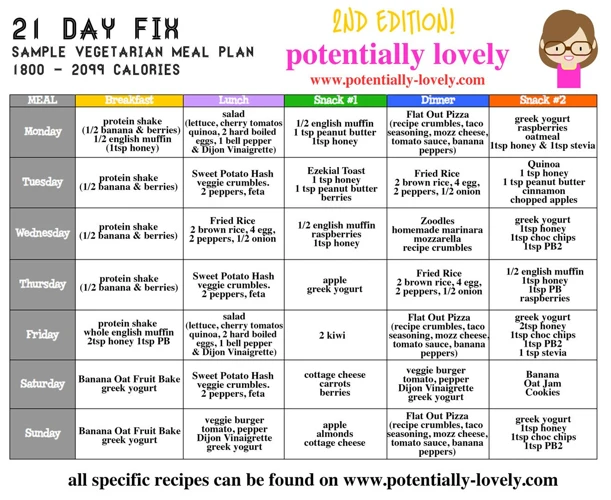
Planning a vegetarian meal plan for weight loss can be challenging, but with the right plan, it can be effortless. This sample one-week vegetarian meal plan for weight loss will help you understand how to build a balanced vegetarian diet that supports weight loss.
Monday:
- Breakfast: Scrambled tofu with mixed vegetables and whole-grain toast
- Lunch: Greek salad with chickpeas and mixed greens
- Dinner: Lentil soup with mixed vegetables and whole-grain bread
- Snack: Apple with almond butter
Tuesday:
- Breakfast: Overnight oats with mixed berries and chia seeds
- Lunch: Quinoa and black bean salad with avocado and mixed greens
- Dinner: Grilled portobello mushrooms with mashed sweet potato and steamed broccoli
- Snack: Carrots and hummus
Wednesday:
- Breakfast: Smoothie made with mixed berries, spinach, and vegan protein powder
- Lunch: Roasted vegetable wrap with hummus and mixed greens
- Dinner: Mushroom stroganoff with whole-grain noodles
- Snack: Banana with almond butter
Thursday:
- Breakfast: Vegan protein pancakes with mixed berries
- Lunch: Chickpea and vegetable stir-fry with brown rice
- Dinner: Baked sweet potato with black bean chili
- Snack: Mixed nuts
Friday:
- Breakfast: Vegan yogurt bowl with mixed berries and granola
- Lunch: Tofu and vegetable kebab with mixed greens
- Dinner: Cauliflower rice stir-fry with mixed vegetables and tofu
- Snack: Grapes with walnuts
Saturday:
- Breakfast: Whole-grain toast with avocado and tomato slices
- Lunch: Vegan cream of mushroom soup with mixed vegetables
- Dinner: Vegetarian chili with mixed vegetables and whole-grain bread
- Snack: Edamame
Sunday:
- Breakfast: Vegan breakfast burrito with roasted vegetables, beans, and avocado
- Lunch: Greek salad with tofu and mixed greens
- Dinner: Grilled vegetable and tofu kebabs with brown rice
- Snack: Apple slices with peanut butter
Make sure to include plenty of vegetables, whole grains, and plant-based protein sources in your meals. This sample meal plan includes a variety of foods, but it’s important to tailor it to your individual caloric needs and preferences. Consult with a registered dietitian to help create a personalized meal plan that supports your weight loss goals.
Common Pitfalls and How to Avoid Them
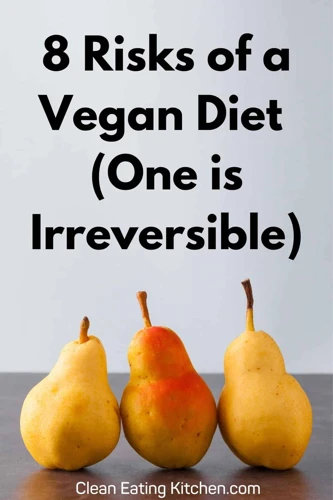
As with any dietary plan, there are potential pitfalls that can hinder progress towards weight loss goals. It is important to identify and avoid these stumbling blocks in order to achieve success on a vegetarian meal plan. Here are some common challenges to watch out for, as well as tips for overcoming them:
Not Getting Enough Protein
Protein is an essential nutrient that our bodies need to build and repair tissues, produce enzymes and hormones, and support immune function. Not getting enough protein can lead to muscle loss, weakness, and other health issues. This can be a concern for vegetarians, as many protein-rich foods are often meat-based. However, there are plenty of vegetarian options for getting the protein your body needs.
Here are some of the best vegetarian protein sources to include in your meal plan:
| Food | Protein Content | Serving Size |
|---|---|---|
| Lentils | 18 grams | 1 cup cooked |
| Chickpeas | 14.5 grams | 1 cup cooked |
| Quinoa | 8 grams | 1 cup cooked |
| Tofu | 10 grams | 1/2 cup |
| Tempeh | 15 grams | 1/2 cup |
| Seitan | 25 grams | 3 ounces |
| Greek Yogurt | 23 grams | 1 cup |
| Cottage Cheese | 14 grams | 1/2 cup |
| Soy Milk | 8 grams | 1 cup |
It’s important to note that not all protein sources are created equal. Complete proteins contain all nine essential amino acids that our bodies can’t produce on their own. Vegetarians can still get complete proteins by combining certain foods, such as rice and beans or peanut butter on whole-grain bread.
Finally, be mindful of portion sizes when consuming protein-rich foods, as overeating any nutrient can lead to weight gain. Aim to include a variety of protein sources in your diet and consult a registered dietitian if you have concerns about meeting your protein needs on a vegetarian diet.
Too Much Processed Food
One of the common pitfalls of a vegetarian diet for weight loss is consuming too much processed food. While vegetarian processed food options might seem like a quick and easy meal choice, they are often high in calories, sodium, unhealthy fats, and added sugars. These foods should be limited in a balanced diet.
Processed food can also lead to overeating and weight gain. Many processed foods lack the proper nutrients and fiber needed to keep us feeling full and satisfied, leading to cravings for more unhealthy foods. In contrast, whole, unprocessed foods such as vegetables, fruits, and legumes are packed with fiber and essential nutrients, making them more filling and satisfying.
Here is an HTML table detailing some examples of common processed foods and their healthier, whole food alternatives.
| Processed Food | Whole Food Alternative |
|---|---|
| White bread | Whole grain bread |
| Breakfast cereals | Oatmeal or homemade granola |
| Frozen vegetarian meals | Homemade vegetable stir-fry |
| Veggie burgers | Homemade bean or lentil burgers |
| Vegetarian hot dogs or deli slices | Whole grain wraps with hummus, avocado, and veggies |
| Vegan cheese | Nutritional yeast or homemade cashew cheese |
| Fruit snacks or gummies | Fresh or dried fruit |
By swapping out processed foods for whole, nutrient-dense options, you’ll be able to fuel your body with the necessary nutrients without consuming excess calories from unhealthy ingredients. Not only will this make weight loss easier, but it will also leave you feeling more energized and satisfied throughout the day.
Overeating Calories
One common pitfall of any weight loss plan, including a vegetarian one, is overeating calories. Even if you are eating healthy foods, if you consume too many calories, you will not lose weight.
Portion control is the key to avoiding overeating. Measure out your food and pay attention to your hunger and fullness cues. Don’t eat until you’re stuffed, stop when you’re satisfied.
Another way to avoid overeating is to limit processed foods. While some vegetarian processed foods, like veggie burgers or tofu, are healthy options, others can be high in calories and low in nutrients. Stick to whole foods like fruits, vegetables, whole grains, and legumes to ensure you are getting the nutrients you need without the added calories.
It’s also important to be aware of high-calorie vegetarian foods, such as nuts, seeds, avocados, and oils. While these foods are healthy in moderation, they can quickly add up in calories if you eat too much of them.
To help you stay on track with your calorie intake, track your food in a food journal or app. This will help you be more mindful of what you are eating and how many calories you are consuming. Additionally, it can be helpful to plan ahead for meals and snacks, so you are less likely to make impulsive decisions that lead to overeating.
| Ways to Avoid Overeating Calories on a Vegetarian Diet: |
| 1. Practice portion control |
| 2. Limit processed foods |
| 3. Be aware of high-calorie vegetarian foods |
| 4. Track your food intake |
| 5. Plan ahead for meals and snacks |
Tips for Maintaining Weight Loss on a Vegetarian Diet
Maintaining weight loss is often more challenging than losing weight in the first place. However, with the right approach and mindset, it is possible to keep the weight off for good on a vegetarian diet. Here are some tips to help with maintaining weight loss:
1. Make sustainable lifestyle changes: One of the most important things to do when trying to maintain weight loss is to make sustainable lifestyle changes. This means focusing on building healthy habits that will last over the long term, rather than simply following a strict diet for a short period of time.
2. Stay active and move your body: Exercise is essential for maintaining weight loss. It helps to build lean muscle, burn calories, and boost metabolism. Try to find activities that you enjoy and make them a regular part of your routine.
3. Eat a variety of healthy foods: A balanced and varied diet is important for maintaining weight loss. Keep your meals interesting by trying out new recipes and including plenty of colorful fruits and vegetables.
4. Track your progress: Regularly tracking your progress can help you stay motivated and on track. This could involve keeping a food diary, using a fitness tracker, or taking progress photos.
5. Stay mindful of portion sizes: Even healthy foods can be high in calories, so it’s important to be mindful of portion sizes. Use measuring cups and food scales to help you accurately portion out your meals and snacks.
6. Get enough sleep: Getting enough sleep is important for maintaining weight loss. Poor sleep can lead to increased levels of hunger hormones, as well as decreased feelings of fullness.
7. Manage stress: Stress can have a big impact on weight loss and weight maintenance. Practice stress-management techniques such as meditation, yoga, or deep breathing to help manage stress levels.
By focusing on building sustainable habits and staying mindful of your eating and exercise habits, it is possible to maintain weight loss on a vegetarian diet. With time and consistency, these tips can become a natural part of your lifestyle and help you to achieve and maintain your weight loss goals.
Conclusion
In conclusion, a well-planned vegetarian diet can be an effective and healthy way to achieve weight loss goals. By incorporating high-protein, high-fiber, and low-calorie foods into daily meals, individuals can feel satisfied while consuming fewer calories. It is important to ensure that the diet is balanced and meets the body’s caloric and nutrient needs.
To achieve long-term success, it is essential to avoid common pitfalls such as not getting enough protein, consuming too much processed food, and overeating calories. Planning meals in advance and making healthy food choices can help prevent these pitfalls.
Furthermore, maintaining weight loss on a vegetarian diet can be achieved by establishing healthy habits, such as regular exercise, monitoring calorie intake, and making balanced food choices.
Overall, the benefits of a vegetarian diet for weight loss and overall health are clear. By following the tips and strategies outlined in this guide, individuals can achieve a healthy weight and a balanced diet while enjoying delicious and nutritious vegetarian meals.
Frequently Asked Questions
What are the benefits of following a vegetarian diet?
Following a vegetarian diet can lead to a reduced risk of chronic diseases, such as heart disease, diabetes, and cancer. It can also promote weight loss, improve digestion, and enhance mood.
Can a vegetarian diet provide enough protein?
Yes, a well-planned vegetarian diet can provide all the necessary protein the body needs. Plant-based protein sources such as legumes, tofu, tempeh, and seitan are excellent options for vegetarians.
Is it easy to lose weight on a vegetarian diet?
Yes, a vegetarian diet can promote weight loss as long as it is well-planned and provides the necessary nutrients the body needs. Vegetarian diets are often rich in fiber, low in fat, and lower in calories, which can lead to weight loss.
Are there any risks to following a vegetarian diet?
It is important for vegetarians to make sure they are getting all the necessary nutrients, such as protein, iron, and vitamin B12. A well-planned vegetarian diet can provide these nutrients, but some vegetarians may need to take supplements to ensure they are meeting their nutritional needs.
What are some high-protein vegetarian foods?
Some high-protein vegetarian foods include lentils, chickpeas, black beans, tofu, tempeh, seitan, quinoa, and nuts and seeds.
What are some high-fiber vegetarian foods?
Some high-fiber vegetarian foods include fruits, vegetables, whole grains, legumes, nuts, and seeds.
What are some low-calorie vegetarian foods?
Some low-calorie vegetarian foods include leafy greens, non-starchy vegetables, fruits, and soups made with broth and vegetables.
How many calories should I consume to lose weight on a vegetarian diet?
Caloric needs vary based on an individual’s age, gender, weight, and activity level. Generally, a safe caloric deficit for weight loss is 500-1000 calories per day, but it is important to consult with a healthcare professional to determine the appropriate caloric intake for your individual needs.
How can I ensure I am getting all the necessary nutrients on a vegetarian diet?
It is important to eat a varied diet that includes a variety of fruits, vegetables, whole grains, legumes, nuts, and seeds. Taking a daily multivitamin or supplements, such as iron and vitamin B12, may also be necessary for some vegetarians.
Can I still eat out at restaurants while following a vegetarian diet?
Yes, many restaurants offer vegetarian options on their menu. It is important to communicate with the server or chef to ensure the meal is truly vegetarian and to ask for modifications if necessary.







